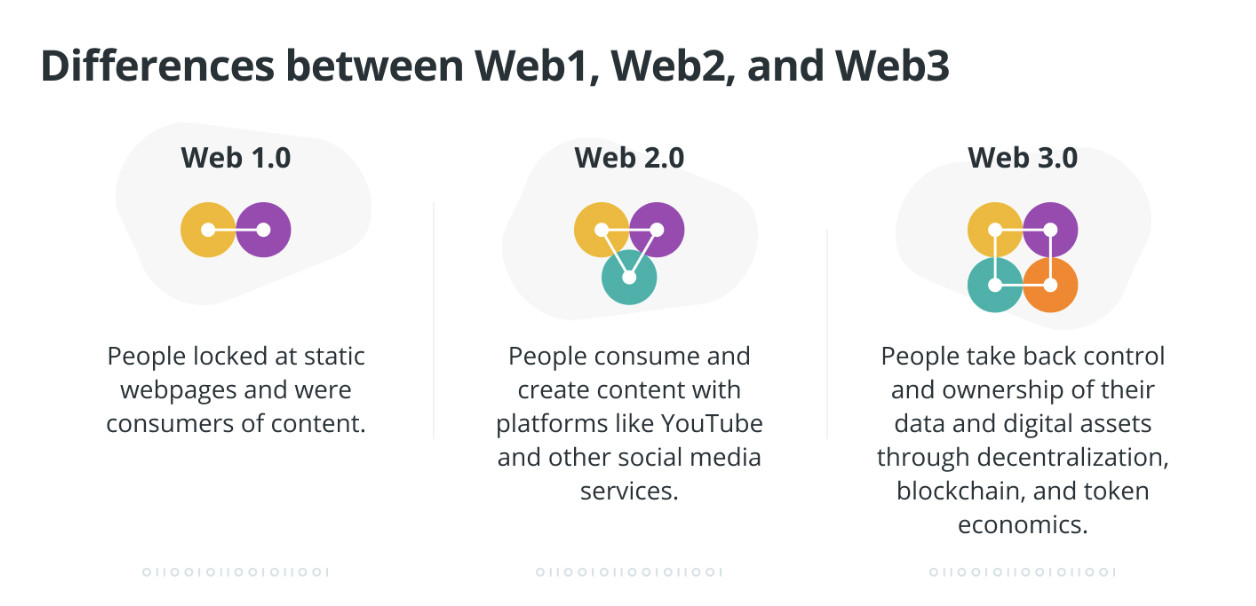The Future of Web3: Privacy, Decentralized Identity, and AI Threats

As we move toward 2025, the internet is undergoing a paradigm shift. Data privacy, user sovereignty, and decentralized identity solutions are becoming critical pillars of Web3. According to Edison Chen, CEO of Web3 health and wellness company CUDIS, the next frontier isn’t just about blockchain innovation—it’s about users reclaiming control over their personal information.
The Rise of Decentralized Identity and Data Ownership
Historically, tech giants have controlled user data, often profiting from it without explicit consent. That era is coming to an end. Selective disclosure through decentralized identity solutions is paving the way for individuals to decide how their data is shared and monetized.
Chen explains the shift in power dynamics clearly:
“Historically, big companies have controlled user data, often monetizing it without consent. That’s changing. People now want to own their data and decide how it’s shared and monetized.”
This transition is particularly crucial in industries like healthcare, where privacy isn’t just a preference—it’s a legal and ethical necessity. AI-driven advancements make data protection more challenging, increasing the urgency for decentralized, user-first frameworks.
 Privacy, Identity, Identification, Cybersecurity, Web3 Cointelegraph
Privacy, Identity, Identification, Cybersecurity, Web3 Cointelegraph
Related: Italy fines OpenAI $15M over data protection, privacy breaches
The AI and Quantum Threat to Privacy
Decentralization isn’t just a convenience—it’s fast becoming a necessity. AI and quantum computing pose unprecedented risks to data security, according to cybersecurity expert David Holtzman.
Holtzman, author of Privacy Lost: How Technology is Endangering Your Privacy, warns that centralized data repositories are inherently vulnerable. A single breach can expose millions. AI-driven analytics can identify patterns, track blockchain transactions, and predict user behavior, creating opportunities for malicious actors to exploit personal and financial data.
Can Quantum Computing Break Encryption?
The rise of quantum computing adds another layer of risk. These powerful machines have the potential to crack modern encryption standards, making today’s security protocols obsolete. Financial institutions, military intelligence, and even cryptocurrencies could be significantly compromised if proper countermeasures aren’t in place.
Luckily, decentralized blockchain solutions provide a robust defense. Some of the most promising solutions include:
- Quantum-resistant cryptography: Safeguarding data against quantum decryption methods.
- Distributed AI models: Mitigating risks by ensuring no single entity has full control over AI decision-making.
Local AI Models: The Key to Privacy?
In July 2024, Tether CEO Paolo Ardoino made a compelling case for localized AI models. He argued that running AI models on personal devices rather than centralized servers drastically reduces privacy risks.
Ardoino emphasized the raw processing power of today’s smartphones and laptops, asserting that these devices are fully capable of running AI models natively. The result? Users retain control, reducing reliance on Big Tech and minimizing exposure to data breaches.
“The only way to ensure user privacy and independence from corporate control is to localize AI models,” Ardoino expressed on X (formerly Twitter).
The Road Ahead: A Decentralized Future
As Web3 continues to evolve, privacy and security must be foundational elements of this new digital world. AI and quantum threats are real, but decentralized technology is equally capable of mitigating these risks.
The move toward self-sovereign identity, selective data disclosure, and decentralized AI represents more than just technological evolution—it’s a reclaiming of user rights. The question isn’t whether Web3 will reshape the internet. It’s how quickly we can secure its foundations before centralized powers strike back.
As we head into 2025, one thing is clear: the battle for digital privacy isn’t over—it’s just beginning.
Magazine: Tornado Cash 2.0: The race to build safe and legal coin mixers

